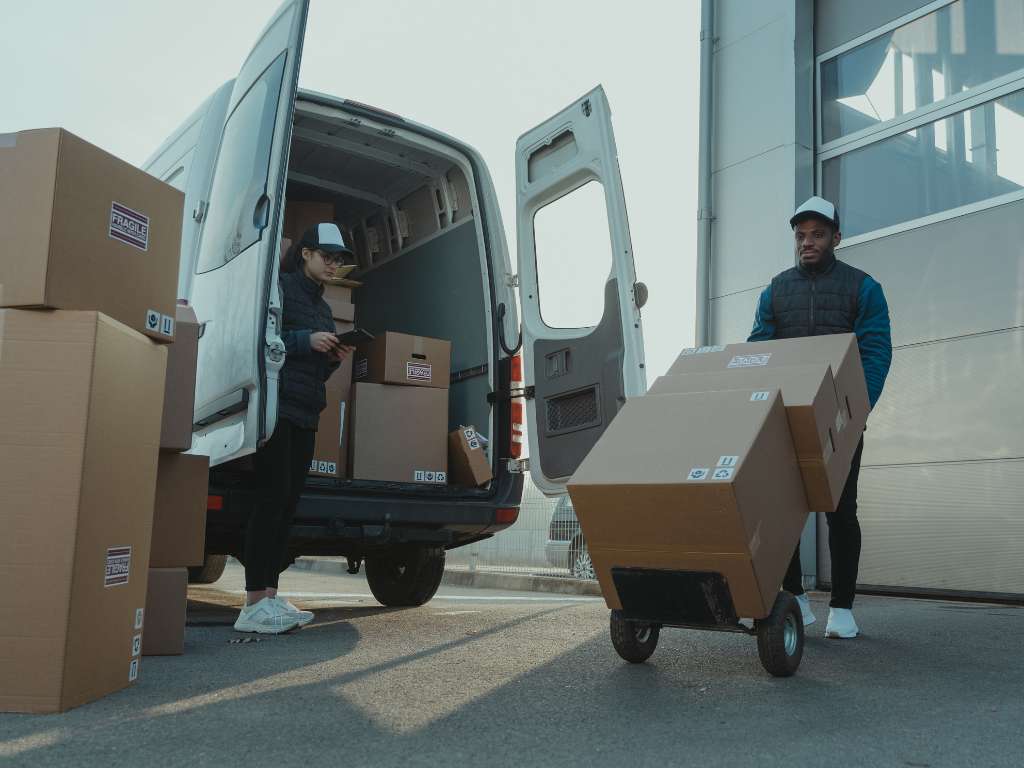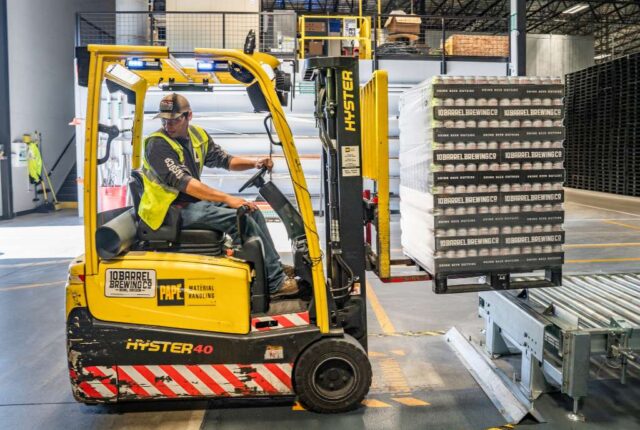
How to Manage Logistics Operations in Dubai?
Dubai is a crossroad or bridging city connecting multiple cultures and sharing trading regulations. Its strategic location makes it a leader in logistics operations in Dubai with professional management. Whether you want to send your shipment through land cargo, air, or sea freight, Dubai offers its best infrastructure to manage all. The country has world-class logistics management facilities, but it doesn’t mean that the business has no challenging factors during completion. Rapid urbanization and changes in environmental regulations affect cargo planning and execution.
Logistics companies need more efficient planning and management to operate smoothly. Choosing strategic location and connecting logistic services with technology-based tools can minimize the delivery time while operating companies can also generate more satisfied revenue. The city offers a dedicated environment for logistics success but requires a strategic approach to get full benefit of its development. Although the challenges are not shorter, effective logistics management can save from all arising barriers.
Understanding Dubai’s Logistics Landscape
Dubai has several logistics zones to facilitate the businesses of all types. The country’s specialized logistic hubs are designed to provide tax-free and additional incentives during arrangements. Jebel Ali Free Zone, the International Airport, and its surrounding area are some of the most popular zones. For successful logistics arrangements, businesses must comply with the regulations and protocols set by local authorities and import/export rules. Having a strong connection with all modes of cargo, the country offers multiple routes and transportation sources to choose from according to one’s preferences.
Essential Strategies for Logistics Success in Dubai
Optimizing warehouse operations for desert conditions
Businesses should adopt tailored strategies to meet the unique requirements of the city’s unique challenges. The optimized warehouse is the first and significant demand to prevent the harsh weather conditions of Dubai. Businesses must develop climate-controlled storage spaces to keep the products safe from decaying. Insulated panels or solar power systems can also help maintain a cool temperature without incurring high costs. Flexible layout in designing warehouses is essential to meet the scalable storage demands.
Leveraging Dubai’s multimodal transportation advantages
Dubai’s logistic customer services offer multiple transport modes to reduce costs and minimize the traveling routes for cargo shipments. Combining the budget-friendly options of sea freight and the speed of air transport can prove beneficial. Dubai also has well-managed and connecting roads to deliver emergency deliveries within the city and surrounding regions.
Technology integration for competitive advantage
The advanced technology and digital progress are helping in warehouse management and monitoring storage without facing difficulty. Automated monitoring tools, getting information about required order and space adjustments, helps to maintain the storage system without missing any items. Advanced inventions of the modern era have made tracking cargo vehicles easier and smooth. The decision-making and route selection have become easier with the help of artificial intelligence and predictive analytics.
Navigating Cultural and Business Considerations
Working with local partners
Development of strong and trustworthy relations with local service providers is essential to prevent compliance issues. Businesses should personally visit the serving spaces to build a strong relationship. Having a detailed discussion before signing a contract is beneficial in this context. Some organizations operate on rigid rules, so shipping brands should have enough knowledge about these guidelines to make a smooth partnership.
Understanding business etiquette
Respecting foreign countries’ culture and having a humble nature in business can go a long way in Dubai’s logistics management. Partners should greet each other formally and politely and shake hands to create a friendly environment. Individuals should attend all scheduled meetings on time to be punctual and professional. The management should adjust their working hours according to cultural norms, such as in Ramadan, the operational hours must be minimized.
Managing multicultural teams effectively
Dubai offers a diverse working force having employees from various countries. Therefore, management should develop a working environment by considering all team members’ language differences and religious practices. Using an international communication language such as English can prevent misunderstandings.
Cost Management in Dubai’s Logistics Sector
Identifying hidden costs in Dubai operations
Where Dubai’s high-class infrastructure offers rich progress opportunities, its cost pressure can also create pressure for beginners. Managing all fuel expenses, regulatory fees, and expensive real estate prices requires a strategic approach and professional handling. Businesses must have comprehensive knowledge about the upfront and hidden costs for logistics management. For example, warehouse rent or vehicle maintenance are common prices, but delays in customs clearance or inefficient delivery services can impact the overall budget.
Strategic approaches to fuel and energy management
Logistics management should use highly maintained vehicles for delivery and operate with proper route planning to accurately estimate time. Solar and LED lights in warehouses can save costs and prove environmentally friendly. Instead of dealing with lower fuel rates, logistic companies should consider bulk deals to save on discounted prices.
Labor and staffing considerations
Managing appropriate and capable employees highly impacts on working efficiency and service quality. Logistics teams should prefer seasonal hiring or offer part-time salaries instead of hiring additional permanent employees. Businesses should invest in frequent staff training to update their safety knowledge. It helps in saving costs on errors or hiring a new highly-expert team.
Technology Solutions for Dubai Logistics
Warehouse management systems
Dubai’s logistics companies rapidly use the latest technology features in their operational system to increase efficiency and working speed. A modern warehouse is the best example to witness this advancement. Companies use the real-time tracking system to update the stock, and the latest space optimization helps get an accurate layout. Proper planning for storage reduces cost and allows scalable features to fulfill the variable business demands. Companies use environment sensors in the warehouse to maintain an ideal temperature for perishable items.
Tracking and visibility solutions for regional supply chains
Providing real-time tracking and visibility can increase the services’ trust over clients. Therefore, logistics companies should consider it. Using live GPS in delivery vehicles can provide updates about location, and the client can be satisfied by observing the driver’s performance. Companies should operate transparently by offering businesses a rich visibility from the warehouse to house doorstep delivery.
Customs and compliance automation tools
Satisfying compliance is essential to stay safe from regulatory fines and manage all logistics without committing errors. Companies should prefer automatic documentation to prevent filling errors. Preparing invoices and forms with automotive software can enhance accuracy and reduce overall management cost. Using tariff classification tools can also help reduce fines and timely detection of alarming situations.
Final Analysis
Logistics management is essential to stay profitable and focus on client satisfaction. Managing companies should update their working policies according to modern business requirements. Applying innovative managing ideas can reduce operational costs and provide rich opportunities for success. Local logistics companies in Dubai must use advanced tracking tools and update their warehouse features to protect the shipments from loading to delivery. Using the described strategies helps run a hassle-free and smooth operation without worrying about errors or legal penalties.
FAQs
What permits are required to operate a logistics business in Dubai?
An individual should obtain a trade license from the DED authority and register the custom code to operate an authentic presence. Tenancy contracts and Ejari are also essential to develop legal business premises.
How do seasonal weather conditions affect logistics operations?
Extreme hot weather can affect the vehicle’s performance and drivers must spend on maintenance. Cold chain logistics also face a high risk of decay, and labour demands additional resting hours to prevent hot summer days. However, making advanced arrangements about weather adoption can save from emergencies.
What are the main customs challenges when importing goods to Dubai?
Using an irrelevant HS code is a significant mistake that results in the wrong classification of goods, and companies have to pay for it. Having incomplete documents or delayed clearance due to repetitive inspection can impact delivery timing. Companies with conventional operations can face document errors or coding mistakes, but using automotive software can minimize the risks.
What technology investments provide the best ROI for Dubai logistics operations?
Using a WMS system in storage spaces can increase the accuracy. Logistics companies can get precise ideas about needed stock and prepare the layout according to business requirements. Applying telematics technology in delivery vehicles can reduce the shipment timing, and drivers can go for multiple orders, which results in higher ROI.




Leave a Reply